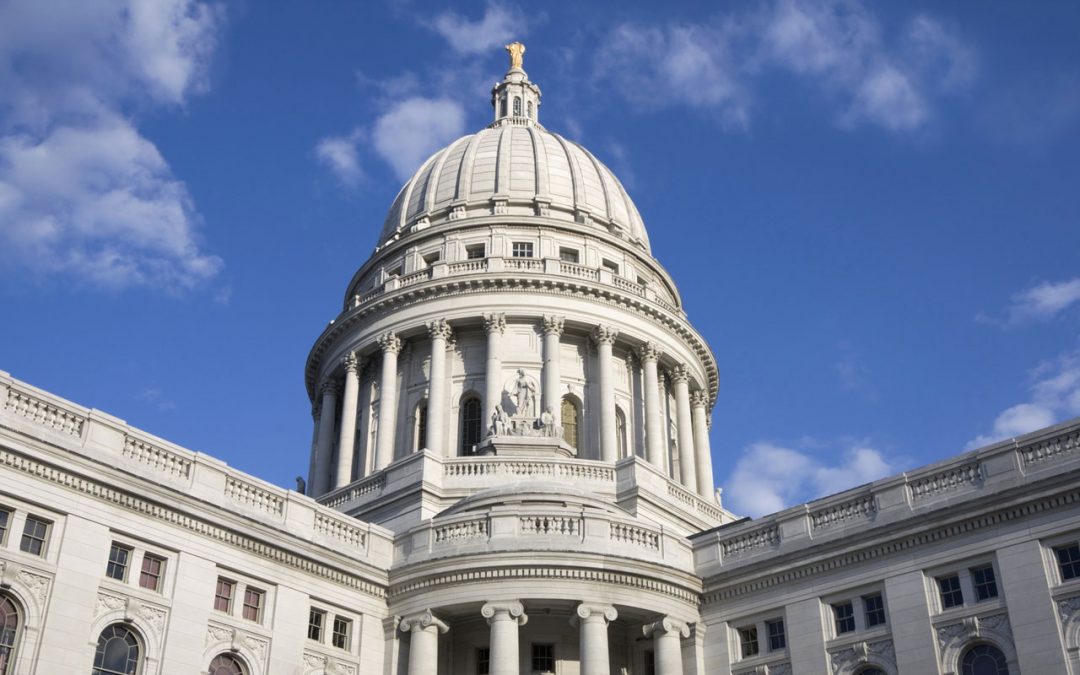
by Jim Boullion | Jul 15, 2021 | Advocacy, Community Solar, Electric Vehicles, Legislative Watchlist, Policy, Renewables, Solar, Utilities
When Governor Tony Evers introduced his 2021-23 Budget Bill in February, it included 28 provisions to advance clean energy and energy efficiency in Wisconsin. Among those provisions were recommendations to expand Focus on Energy, invest in the clean energy workforce, and support Wisconsin’s electric vehicle infrastructure.
Unfortunately, by the time the Governor signed the Budget on Thursday, July 8th, those 28 provisions, along with a majority of the Governor’s other initiatives, were removed from the Budget document adopted by the Joint Finance Committee (JFC) and legislature.
A number of the provisions and other clean energy bills may still be considered during the remainder of the upcoming regular legislative session. Among the proposals we expect to be considered include:
- Community Solar Expansion – Authorize the development of non-utility-owned community solar projects. Would direct the PSC to establish fair credit rates for subscribers and compensation to utilities for the use of their infrastructure and billing services. (Introduced for co-sponsorship on July 14th)
- 3rd Party Financing – Affirm 3rd party financing of solar arrays is legal.
- Direct Purchase of Automobiles – Enable electric vehicle manufacturers to sell vehicles directly to consumers in Wisconsin, either online or at manufacturer-owned facilities, without going through an independent dealership.
- EV Charging Station Grants – Allocate up to $10 million of the unspent VW Settlement funds for clean energy corridor incentives for EV charging stations.
- EV Charging Fees – Clarify selling electricity by the kilowatt-hour to EVs does not subject EV charging station owners to utility regulation.
RENEW Wisconsin will continue to work with the legislature and the Governor to advance these and other clean energy initiatives. We hope you will join us.
If you would like to talk to your legislators about any of these provisions or have other clean energy ideas that you think the State should adopt, click here to find your representatives’ contact information.
If you have any questions or comments about any of these issues, please contact Jim Boullion, RENEW Wisconsin’s Director of Government Affairs, at jim@renewwisconsin.org.
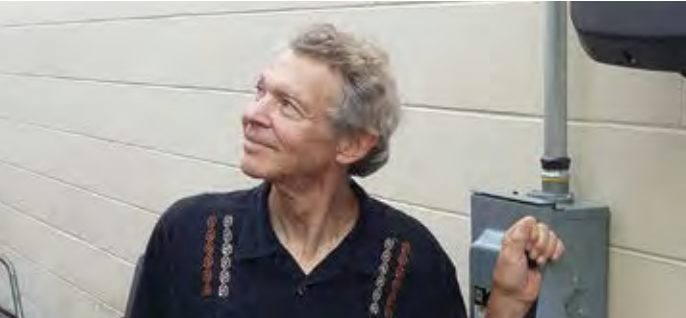
by Elizabeth Misel | Jun 4, 2021 | Community, RENEW Wisconsin, Renewables
In 1991, Don Wichert saw a need for an organization to advocate for Wisconsin’s renewable energy future. As founder and first executive director of RENEW Wisconsin, Don set forth on his mission to promote the development and use of renewable energy resources in the state of Wisconsin. Thirty years later, RENEW is a thriving and growing nonprofit organization working towards clean energy powering a strong, healthy, and vibrant Wisconsin.
RENEW Wisconsin’s accomplishments over the past 30 years are part of Don’s legacy. But there is more work to be done, and Don knows RENEW needs a stable financial foundation to continue its work for another 30 years. He worked with Madison Community Foundation to create a RENEW Wisconsin Charitable Gift Annuity and the RENEW Endowment Fund to ensure a financial pipeline for our clean energy future.
CHARITABLE GIFT ANNUITY
For donors interested in taking a charitable deduction on their taxes in the current year while still receiving income from those assets, a charitable gift annuity (CGA) offers the opportunity to achieve both goals. CGAs allow you to make a current tax-deductible gift to benefit RENEW Wisconsin while still receiving a lifetime annual income.
The idea of a charitable gift annuity was very appealing. The guaranteed interest rate was high enough to make it a reasonable investment during my lifetime. And the CGA provides tax benefits too…RENEW, and the work that it does is my legacy.
Don Wichert, RENEW Wisconsin Founder
RENEW ENDOWMENT FUND
The RENEW Endowment Fund supports paid internships from the Energy Analysis and Policy Program at UW-Madison. This endowment allows RENEW to offer a hands-on, real-life job experience to future leaders in renewable energy.
The RENEW staff gave me the trust and mentorship I needed to become a strong clean energy policy advocate. I was able to grow my utility regulation knowledge, energy education skills, and Midwest clean energy network. Thank you, RENEW WI, for being my strong stepping stone into the clean energy industry.
Lauren Reeg – Energy Analysis and Policy Intern
You have the opportunity to help create a cleaner, stronger, more vibrant Wisconsin by setting up a Charitable Gift Annuity listing RENEW Wisconsin as the beneficiary and/or giving to the RENEW Endowment Fund. Madison Community Foundation makes giving incredibly easy.
I can help facilitate communications with Madison Community Foundation to start planning your legacy now. Contact me at: Elizabeth@renewwisconsin.org or call 608-255-4044 ext. 7
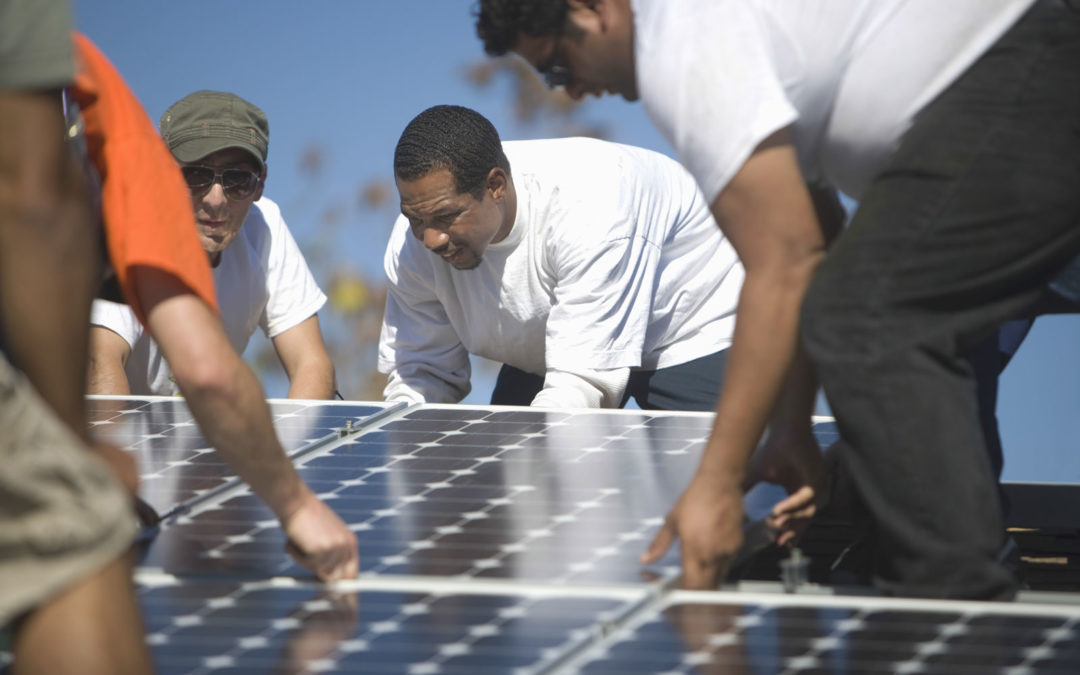
by Sam Dunaiski | May 6, 2021 | Jobs, Renewables, Solar
Today the Solar Energy Industries Association (SEIA), The Solar Foundation, and the Interstate Renewable Energy Council released the 2020 National Solar Jobs Census. While there was a 6.7% decline in the national workforce from 2019, solar jobs in Wisconsin held steady throughout 2020.
Nationally, the solar industry employed 231,474 workers in 2020. The report tracks all solar jobs in residential and utility-scale construction, as well as all supply chains, and includes anyone who spends 50% or more of their time working on solar-related activities.
While overall national solar employment dropped, the Solar Jobs Census results did show favorable numbers in specific categories. Diversity in the workforce increased, mainly among women but also among Blacks, Asians, Latinos, and Hispanics. Additionally, the Census demonstrated that pay rates for solar jobs were comparable or higher than the U.S. averages for similar occupations in energy and construction industries.
Productivity in solar showed significant growth in 2020. Record amounts of solar installations occurred last year as the total U.S. capacity increased by over 19,000 megawatts. A vast majority (73%) of the installed solar capacity was utility-scale, but residential solar productivity also increased by 19% nationwide.
Here in Wisconsin, our solar installation totals set records last year. The completion of the Two Creeks solar farm in Manitowoc County was part of over 200 megawatts of solar that came online in 2020. According to RENEW’s analysis, Wisconsin’s cumulative solar capacity more than doubled in 2020.
Wisconsin residential solar installations also increased in 2020. Over 10 megawatts of solar were installed on homes last year compared with approximately 5 megawatts in 2019. Focus on Energy saw nearly a tripling of requests for residential solar incentives, going from around 700 reservations to over 2,000. This surge in solar adoption was likely due to people spending more time in their homes, recognizing their energy consumption habits, and seeking to reduce their utility bills.
According to the Solar Jobs Census, solar employment figures in the Badger state saw a slight improvement from last year’s figures. Across the state, jobs were up from 2,871 in 2019 to 2,910 in 2020. Wisconsin is ranked #26 nationally for all solar-related employment.
While the Wisconsin job totals are reassuring, significant workforce growth is still needed. According to SEIA, “the solar industry is on a trajectory to reach 400,000 solar jobs by 2030,” but “employment will need to exceed 900,000 workers by 2035 to reach the 100% clean electricity goal set by President Biden.”
Approximately 2,450 megawatts of generation are expected to come online in Wisconsin over the next 3-5 years. We will need to scale up our solar workforce in that timeframe to complete these projects. Wisconsin’s solar industry offers an unparalleled opportunity to grow our clean energy workforce and reinvest millions in our local economies.
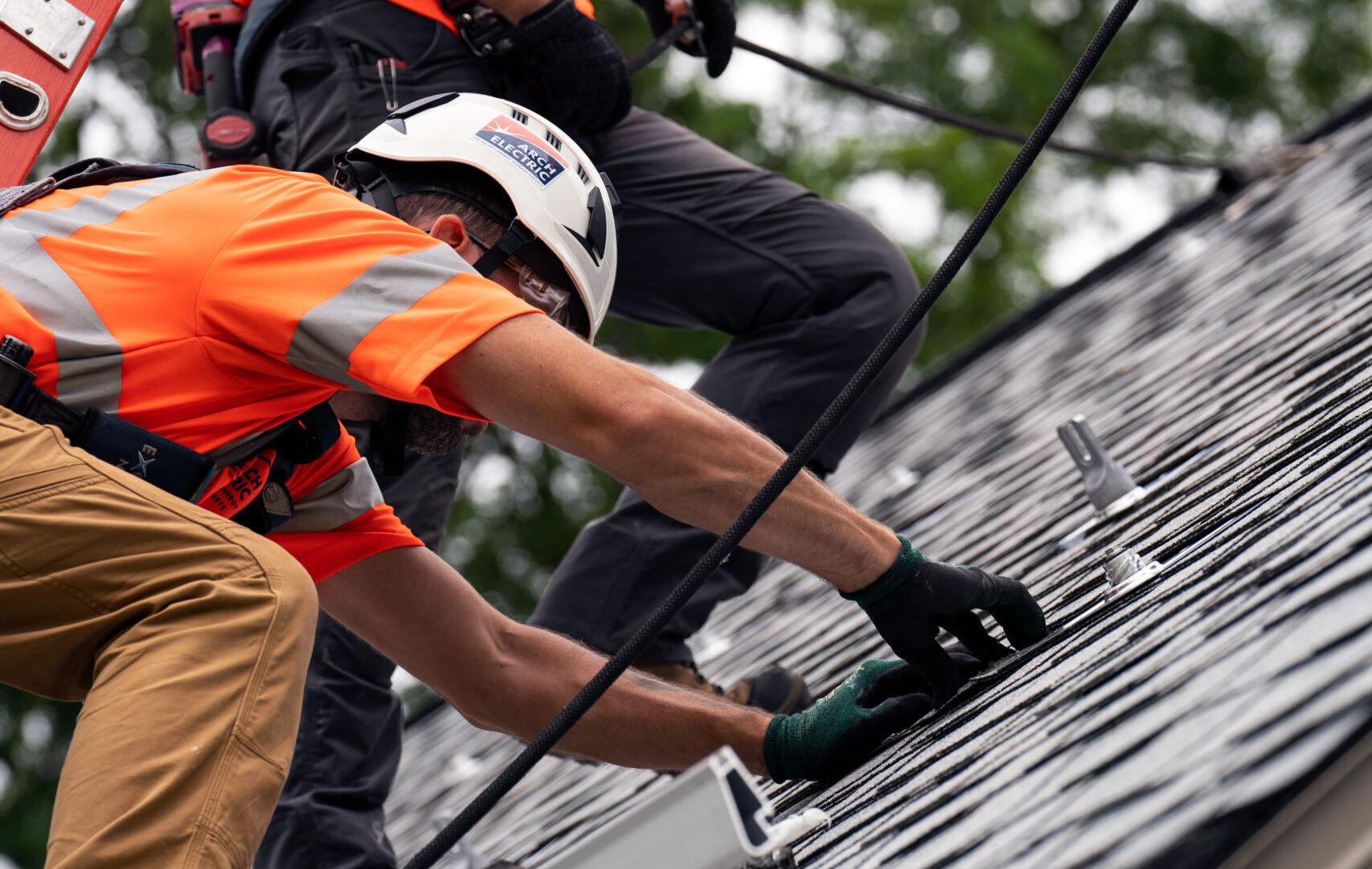
by Sam Dunaiski | Apr 27, 2021 | Local Initiatives, Renewables, Solar, Utilities
On Tuesday, April 27, 2021, the City of Madison and Dane County announced the start of this year’s MadiSUN Solar Energy Programs. The MadiSUN programs aim to expand access to local renewable energy and include initiatives and grants that assist residents, businesses, and nonprofit organizations with onsite solar electric installations.
The MadiSUN Solar Group Buy is for Dane County homeowners looking to install solar on their rooftops. The Solar for Business program provides project grants and consulting services for Madison businesses interested in installing solar electric systems. And the Backyard Solar program offers up to $10,000 in grants for affordable housing providers and nonprofit organizations seeking to install solar electric systems at their facilities in the City of Madison.
The Group Buy program, now in its sixth year, will expand this year to offer solar installations to homeowners across Dane County. The Group Buy has spurred approximately $2.38 million in clean energy investments since 2016 and has added over 800 kilowatts of renewable electricity to the community’s electric grid. To date, nearly 200 local homes have gone solar through MadiSUN.
“Now in its sixth year, the MadiSUN program offers a way for residents, businesses, nonprofits, and affordable housing providers to go solar,” said Stacie Reece, the Sustainability Program Coordinator for the City of Madison. “Every rooftop solar installation contributes to the City of Madison’s goal of 100% renewable energy and helps reduce carbon emissions.”
In addition to expanding the Group Buy to all of Dane County, the program will also expand the number of solar contractors. MadiSUN has partnered with Full Spectrum Solar, Midwest Solar Power, and Arch Electric to ensure residents have access to reputable, experienced contractors for their solar installations.
“With the program’s expansion this year, we wanted to ensure that homeowners throughout the county had multiple options when it came to solar,” stated Sam Dunaiski, Program Director for MadiSUN. “Residents in rural portions of Dane County have different needs than residents in urban or suburban areas. Homeowners will now have access to more solar contractors and the different materials and services they provide.”
The Group Buy will also provide multiple options for homeowners looking to finance their solar systems. Low-interest loans for solar arrays will be available through greenpenny bank and Clean Energy Credit Union.
“We can offer Dane County residents fast, easy, and affordable financing for their solar projects,” said Jason MacDuff, Vice President of greenpenny. “Whether the appeal of solar is its climate stewardship, its economic benefits, or both, greenpenny’s mission is to finance a sustainable tomorrow.”
The Solar for Business program, currently in its fourth year, will offer grants to Madison-based businesses choosing to install onsite solar arrays. The program has facilitated solar on 16 businesses across the city for a total capacity of more than 750 kilowatts of renewable energy.
The Backyard Solar program will continue to offer grants for solar projects with affordable housing providers and nonprofit organizations in Madison. The program approved seven grants during its first two years of operation. These seven projects will result in nearly 550 kilowatts of solar energy, enough to power roughly 100 households.
Movin’ Out, an affordable housing provider based in Madison, won a Backyard grant in 2020 to install a 100-kilowatt solar array at the Ace Apartments. The facility will provide affordable housing access to children, veterans, the disabled, and their families.
“The opportunity to participate in MadiSUN’s Backyard Solar program helps us achieve our goals for green building to provide the healthiest possible environments for the people and communities we serve,” said Kathryne Auerback, Executive Director of Movin’ Out. “The more we are able to invest in renewable energy and environmentally sustainable building now, the greater the returns will be in the long run.”
Residents can receive a complimentary solar assessment by visiting madisunsolar.com and filling out the “I’m Interested” form. Applications for the Group Buy program must be submitted by August 31, 2021. The application deadline for the Backyard Solar Grant is September 1, 2021, and applications for the Solar for Business grant are open until December 31, 2021.
About MadiSUN
MadiSUN facilitates solar power installation for residents, businesses, and nonprofits located within the City of Madison. Promotional videos can be accessed by visiting MadiSUN’s YouTube channel. More can be found at www.madisunsolar.com.
About RENEW Wisconsin
RENEW Wisconsin is a nonprofit organization that promotes solar power, wind power, biogas, local hydropower, geothermal energy, and electric vehicles in Wisconsin. RENEW Wisconsin is contracted by the City of Madison to administer the MadiSUN programs. More information can be found at www.renewwisconsin.org.
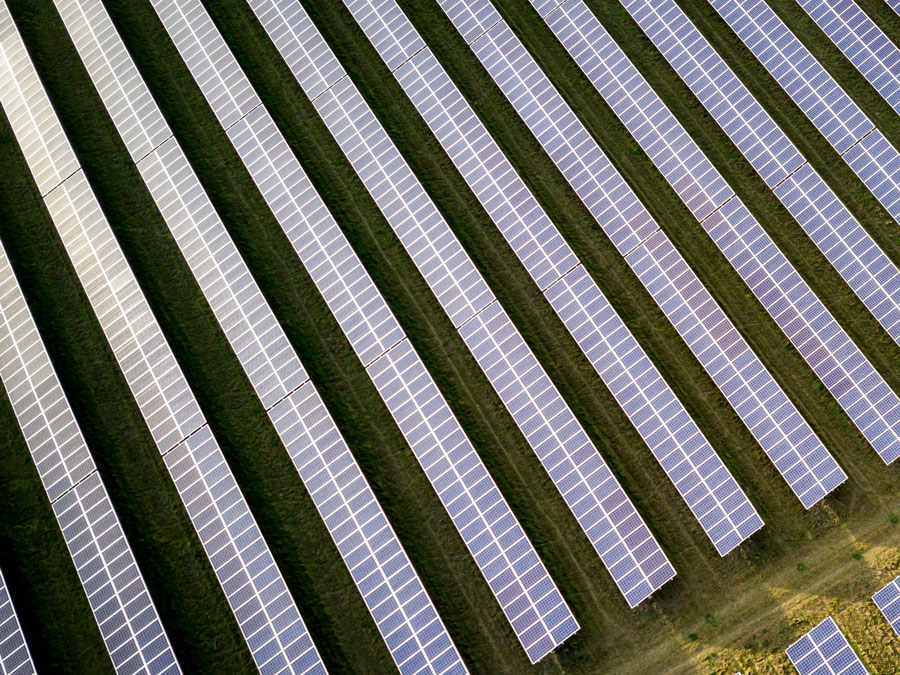
by Michael Vickerman | Apr 22, 2021 | Public Service Commission, Renewables, Solar, Utilities
First round of solar farms to be operational in 2023
The Public Service Commission’s approval today of Alliant Energy’s proposed buildout of new solar power represents the most significant advance yet towards a zero-carbon future in Wisconsin.
With the Commission’s ruling under its belt, Alliant has secured all the necessary permits to set in motion the first wave of a massive solar deployment across Wisconsin. Totaling 675 megawatts (MW), the first six solar farms approved today will take Alliant two-thirds of the way toward its ambitious goal to integrate more than a gigawatt of solar capacity into its base generation portfolio over the next four years. (Note: a gigawatt is 1,000 megawatts).
When this initial wave of projects is fully operational in 2023, roughly 13% of the electricity sold to Alliant customers will come from a solar farm. Indeed, Alliant is on course to own and operate almost one-half of the state’s solar capacity by 2024, a remarkable percentage given that it accounts for only 16% of the state’s electricity sales.
“We salute Alliant for committing to this bold pivot towards zero-carbon power generated in Wisconsin,” said RENEW Wisconsin Executive Director Heather Allen. “We are hopeful the Public Service Commission’s decision will encourage other utilities to go big on solar power.”
Allen said: “Alliant’s substantial investment in clean energy will produce savings that will be passed along to customers over the lifetimes of these projects. But when you factor in the other benefits from solar power–the job creation opportunities, the stream of revenues for host landowners and their communities, and fewer pollutants discharged into our air and groundwater–this build-out is very much in the public interest.”
In March 2021, Alliant submitted an application for authority to build and operate a second wave of solar power, another six farms totaling 414 MW. Approval of that application would increase Alliant’s solar portfolio to 1,089 MW.
“A solar build-out of this magnitude would have been unthinkable five years ago,” Allen said. “Only a handful of utilities then were thinking about replacing their aging coal plants with carbon-free energy sources like solar. But with these two back-to-back solar applications, WPL appears to be off to the races.”
Once operational, the solar farms listed in the tables below would account for more than 20% of Alliant’s electricity sales in Wisconsin. What is more, the output from these 12 solar farms would surpass generation totals now achieved from Wisconsin’s wind power projects.
Alliant Energy solar farms – 6680-CE-182
Approved April 22, 2022 |
| Solar farm |
Location (county) |
Capacity (in MW) |
Year online |
| Crawfish River |
Jefferson |
75 |
2022 |
| Grant County |
Grant |
200 |
2022 |
| North Rock |
Sheboygan |
50 |
2023 |
| Onion River |
Rock |
150 |
2023 |
| Richland County |
Richland |
50 |
2022 |
| Wood County |
Wood |
150 |
2023 |
| Total |
675 |
|
Alliant Energy solar farms – 6680-CE-183
Application filed March 31, 2021 |
| Solar farm |
Location (county) |
Capacity (in MW) |
Year online |
| Albany |
Green |
50 |
2023 |
| Beaver Dam |
Dodge |
50 |
2023 |
| Cassville |
Grant |
50 |
2023 |
| Paddock |
Rock |
65 |
2023 |
| Springfield |
Dodge |
100 |
2022 |
| Wautoma |
Waushara |
99 |
2023 |
| Total |
414 |
|
So why is Alliant working so hard to integrate a gigawatt of solar capacity into its generation mix? The short answer is that the utility has determined that building solar power today is more cost-effective than prolonging the life of its coal units. This realization came after a thorough analysis that compared the adequacy of its existing generating fleet with the operational savings and flexibility Alliant could achieve from a massive solar build-out.
Here’s how Alliant summarized the conclusions of its modeling work to justify its latest application.
“Based on this result, {Alliant} developed its Clean Energy Blueprint resource plan, its preferred plan to benefit customers, which includes: retiring the Edgewater 5 generating unit by the end of 2022; retiring Columbia 1 and Columbia 2 by the end of 2023 and 2024, respectively; serving customers with capacity and energy from 1,089 MW of new utility-scale solar generation installed in Wisconsin by the end of 2023, and installing distributed solar and battery storage resources in the communities {Alliant} serves.
The PSC is expected to rule on its second application in early 2022.
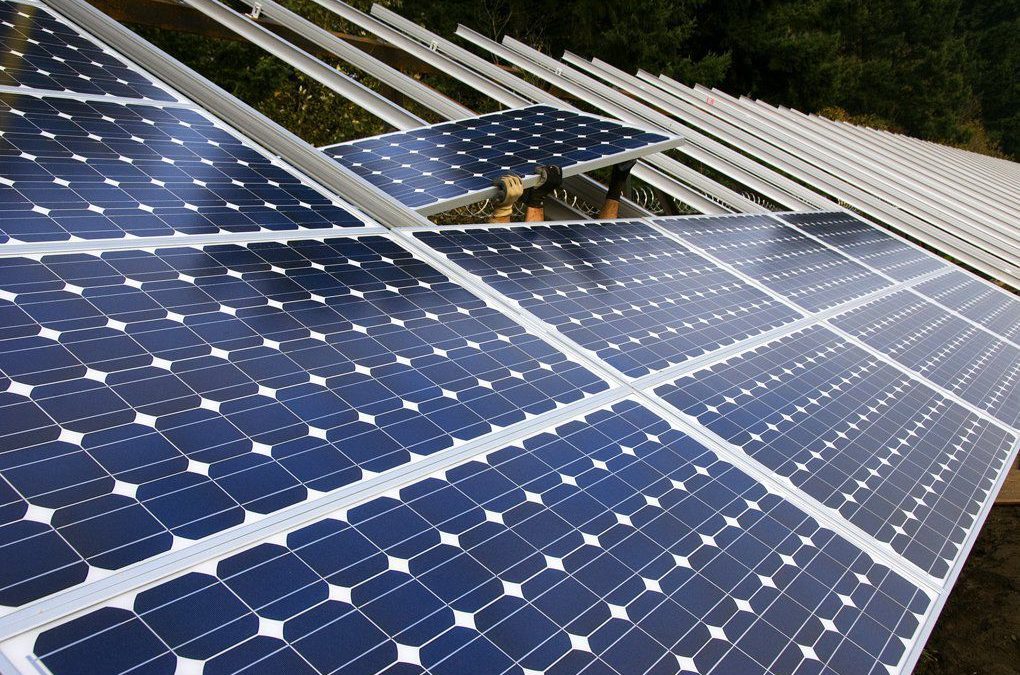
by Michael Vickerman | Mar 16, 2021 | Policy, PSC Priorities, Public Service Commission, RENEW Wisconsin, Renewables, Solar, Utilities
After simmering on the proverbial back burner for nearly two years, the third-party financing issue relating to customer-sited solar power has been thrust back into the public spotlight as pressure builds to resolve the legal questions surrounding it.
The reemergence of this issue can be traced to two parallel developments. The first is a Public Service Commission (PSC) proceeding moving toward a ruling settling the legality of third-party-owned solar systems serving individual retail customers. The second is a lawsuit recently filed by the Midwest Renewable Energy Association in Portage County Circuit Court, challenging the PSC’s authority to regulate the financing of behind-the-meter systems that serve host customers only.
The PSC proceeding began in March 2019 when Eagle Point Solar, a Dubuque-based solar contractor, filed a complaint against We Energies for blocking the installation of rooftop arrays serving the City of Milwaukee. In its complaint, Eagle Point contends that PSC Chapter 119, which regulates the interaction between small-scale electricity producers and the utility grid, does not give We Energies the right to deny interconnection to a customer based on how the generating equipment is financed. According to We Energies, however, a third party owner of the equipment that supplies electricity to one customer under contract should be regulated as a public utility.
Following an extended period of legal maneuvering, the PSC set in motion a process for investigating Eagle Point’s complaint (Docket 9300-DR-104). In so doing, it expanded the scope of the proceeding to consider the public utility question that led to the interconnection denial. When the parties finished entering evidence into the hearing record, the PSC opened a public comment window on the proceeding, which ended on February 23rd.
Supporters of third-party financing sprang into action, led by RENEW. To illustrate the breadth and depth of support for opening up the solar market in this fashion, RENEW circulated an action alert encouraging those who care about this issue to submit comments supporting Eagle Point’s position. Networks such as Wisconsin Climate Table, Wisconsin Health Practitioners for Climate Action, and our own solar contractor e-mail list helped circulate RENEW’s alert beyond our own activist base. At the same time, organizations such as 350 Madison and Environmental Law and Policy Center (ELPC) asked their activists and members to post comments on the PSC website.
As a result of our combined efforts, a total of 336 individuals and organizations weighed with their views on the Eagle Point matter. Of that, 327 comments expressed support for opening the market to allow third-party ownership of solar electric systems in Wisconsin. In that overwhelming display of support, several themes prevailed, including the following:
- Third-party financing is already expressly authorized in 28 states;
- Allowing third-party-owned solar systems is consistent with Wisconsin case law;
- The threat of being regulated as a public utility discourages businesses from providing solar power generated onsite to retail customers through leases and sale agreements;
- Third-party financing would make solar power affordable to low-to-moderate income households and nonprofit entities such as schools;
- Expanding solar financing options would help communities reduce their reliance on harmful fossil energy sources; and
- Expanding solar financing options would invigorate local economies.
These arguments track closely to those articulated by Wisconsin solar contractors and consultants in a March 2019 filing urging the Commission to approve Eagle Point’s petition. Similar to our efforts during the comment period, RENEW shaped the themes in that statement and pulled together a coalition of market actors to demonstrate support for third-party financed solar energy. In the intervening two years, Eagle Point Solar and the City of Milwaukee labored to amass a set of facts and legal arguments to support a finding that WEPCO’s action was unlawful.
The merits of this case are clear-cut, as are the regulatory remedies. Other states that regulate electric utilities have taken steps to affirm the legality of third-party-financed solar, most notably Iowa, which did so in 2014, the result of a long and expensive legal fight waged by Eagle Point. In contrast to Iowa, the State of Wisconsin has allowed this issue to languish for many years without resolution.
But with the filing of briefs from parties on March 10th, the Eagle Point proceeding has finally reached the home stretch. The strong outpouring of public support for third-party financed solar tells us that a policy call from the PSC is long overdue.
In a brief representing RENEW and other solar advocates, we urged the PSC to take the following actions:
- Order WEPCO to interconnect the City of Milwaukee solar projects, regardless of how those projects are financed;
- Clarify that a utility may not deny interconnection based on project ownership, and
- Clarify that third-party owners of customer-sited distributed generation are not “public utilities” under Wisconsin law.
RENEW would like to thank Eagle Point Solar and the City of Milwaukee for leading this crucially important regulatory battle, ELPC for drafting a particularly persuasive legal brief on behalf of clean energy advocates, and the 327 commenters who affirmed their desire for an expanded solar marketplace free of utility interference.






